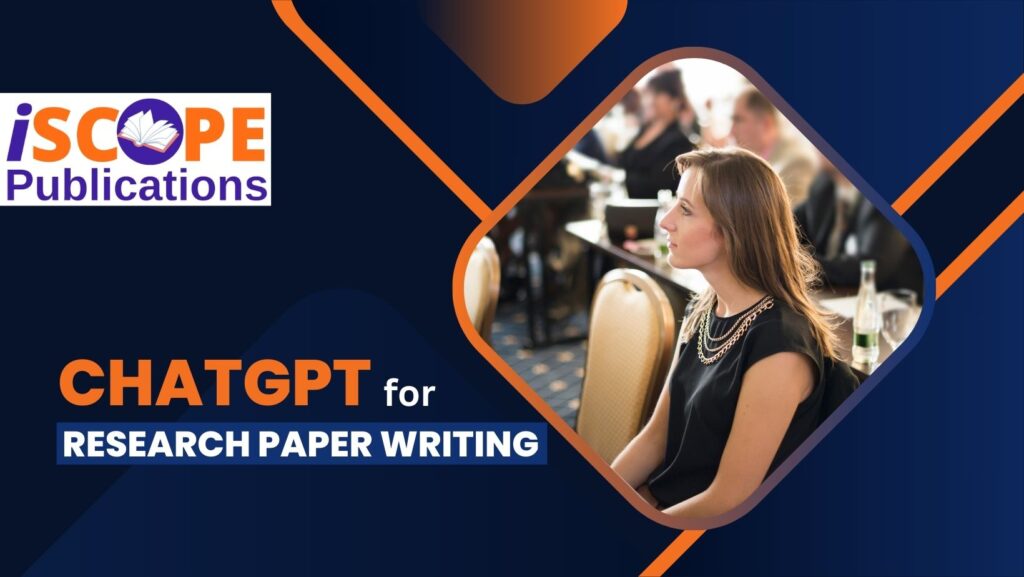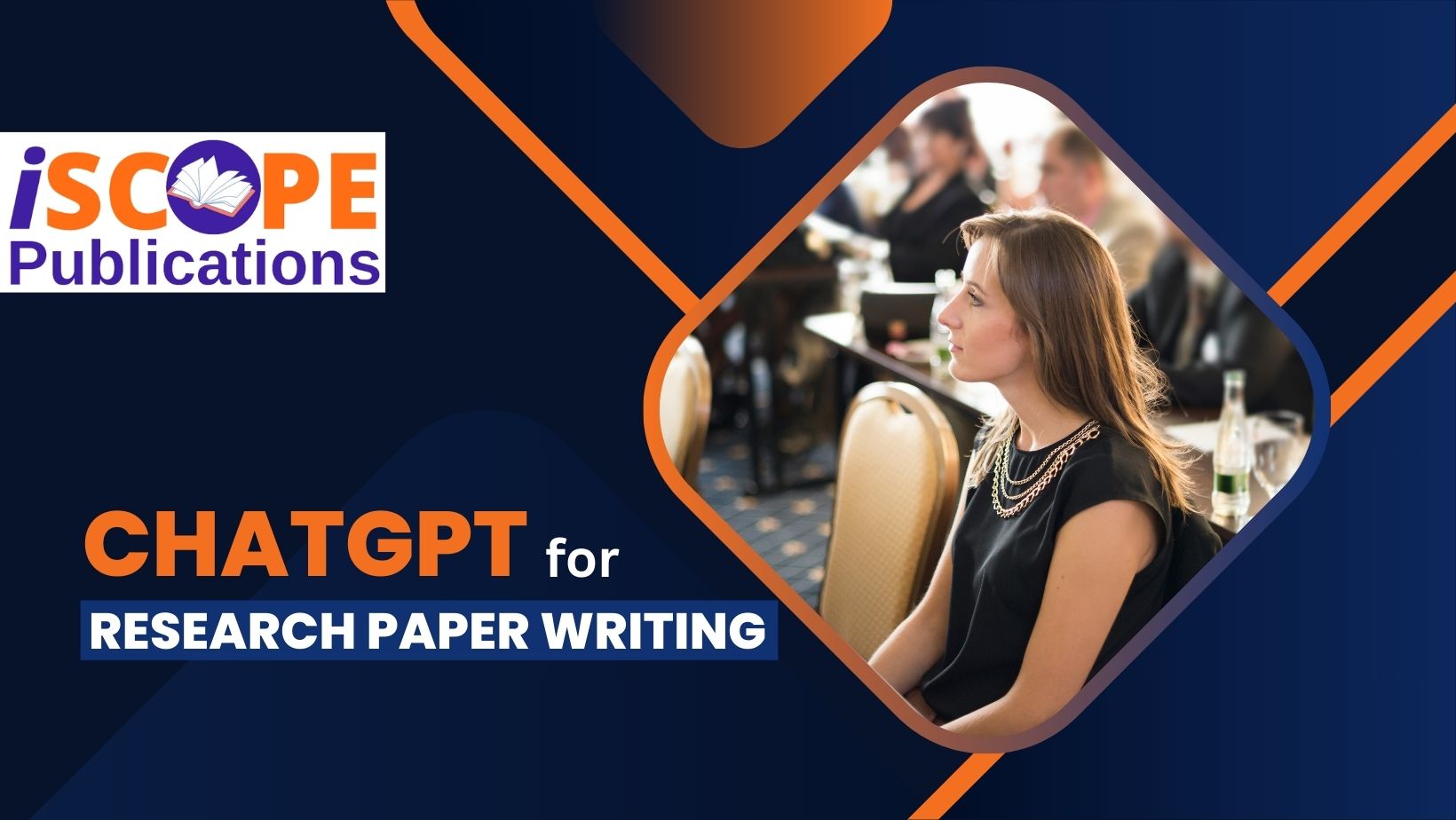Researchers and students alike are constantly searching for innovative solutions to streamline the writing process. One such tool making waves is ChatGPT, an advanced language model by OpenAI. How to effectively use ChatGPT for writing research papers, provide a selection of the best ChatGPT prompts for academic writing, and touch on considerations for publishing in Scopus indexed journals.

Why Use ChatGPT for Research Paper Writing?
ChatGPT offers several advantages for those engaged in writing research papers:
- Efficiency: Iterative nature of research writing can be time-consuming. ChatGPT can assist with generating ideas, creating outlines, and even drafting sections of your paper, making the process faster.
- Content Generation: Model can help in generating literature reviews, summarizing research findings, and formulating arguments that enhance the quality of your writing.
- Writing Assistance: ChatGPT can help improve your writing style, suggest revisions, and provide feedback on clarity and coherence, contributing to a more polished final paper.
- Access to Information: Although its knowledge is up to date only until October 2021, ChatGPT can assist with explanations of concepts, clarifying methodologies, and even helping with common statistical analyses.
Best ChatGPT Prompts for Academic Writing
To maximize the potential of ChatGPT in your research writing, using targeted prompts can lead to more focused and relevant outputs. Effective prompts list:
- Outline Generation:
- “Create an outline for a research paper on [your topic]. Include sections such as introduction, literature review, methodology, results, and discussion.”
- Literature Review Assistance:
- “Summarize key findings from studies related to [your research topic] and suggest how these could contribute to my research.”
- Writing Clarification:
- “Explain the significance of [specific theory or concept] in the context of [your research area].”
- Drafting Sections:
- “Draft the introduction for a paper investigating [your specific topic], highlighting the research question and its relevance.”
- Argument Development:
- “What are the main arguments for [position or hypothesis]? Provide supporting evidence and counterarguments.”
- Editing and Feedback:
- “Review the following paragraph and provide suggestions for improving clarity and coherence: [insert text].”
Considerations for Scopus-Indexed Journals
When aiming to publish in Scopus-indexed journals, it’s crucial to adhere to rigorous academic standards. Here are some key considerations:
- Quality of Research: Journals indexed in Scopus typically focus on high-quality, original research. Ensure your study contributes new knowledge or insights to your field.
- Structure and Formatting: Follow the specific guidelines provided by each journal regarding formatting, citations, and structure. ChatGPT can assist in reformatting and adhering to specific styles (e.g., APA, MLA, Chicago).
- Methodological Rigor: Clearly outline your research methodology. ChatGPT can help explain methods but ensure that your explanations reflect your understanding and perspective.
- Plagiarism Check: While ChatGPT can help generate content ideas and summaries, always ensure that you check for plagiarism and maintain academic integrity by properly citing sources.
- Peer Review: Engage with colleagues or mentors for feedback before submitting your work. While ChatGPT can provide initial feedback, peer review from experts in the field is invaluable.
Is ChatGPT for research paper writing indexed in Scopus?
Yes, you can use ChatGPT as a tool to assist in writing your research paper for submission to a Scopus-indexed journal. ChatGPT can help you generate ideas, create outlines, draft sections, and refine your writing.
ChatGPT serves as a powerful ally in the academic writing process, particularly for research papers. By understanding how to use it effectively through targeted prompts, researchers can enhance their writing efficiency and quality. As you prepare your manuscript for submission to Scopus-indexed journals, remember the importance of maintaining academic integrity and rigor. Potential of AI as a tool to complement your hard work and creativity, ensuring you produce impactful and scholarly contributions to your field.



